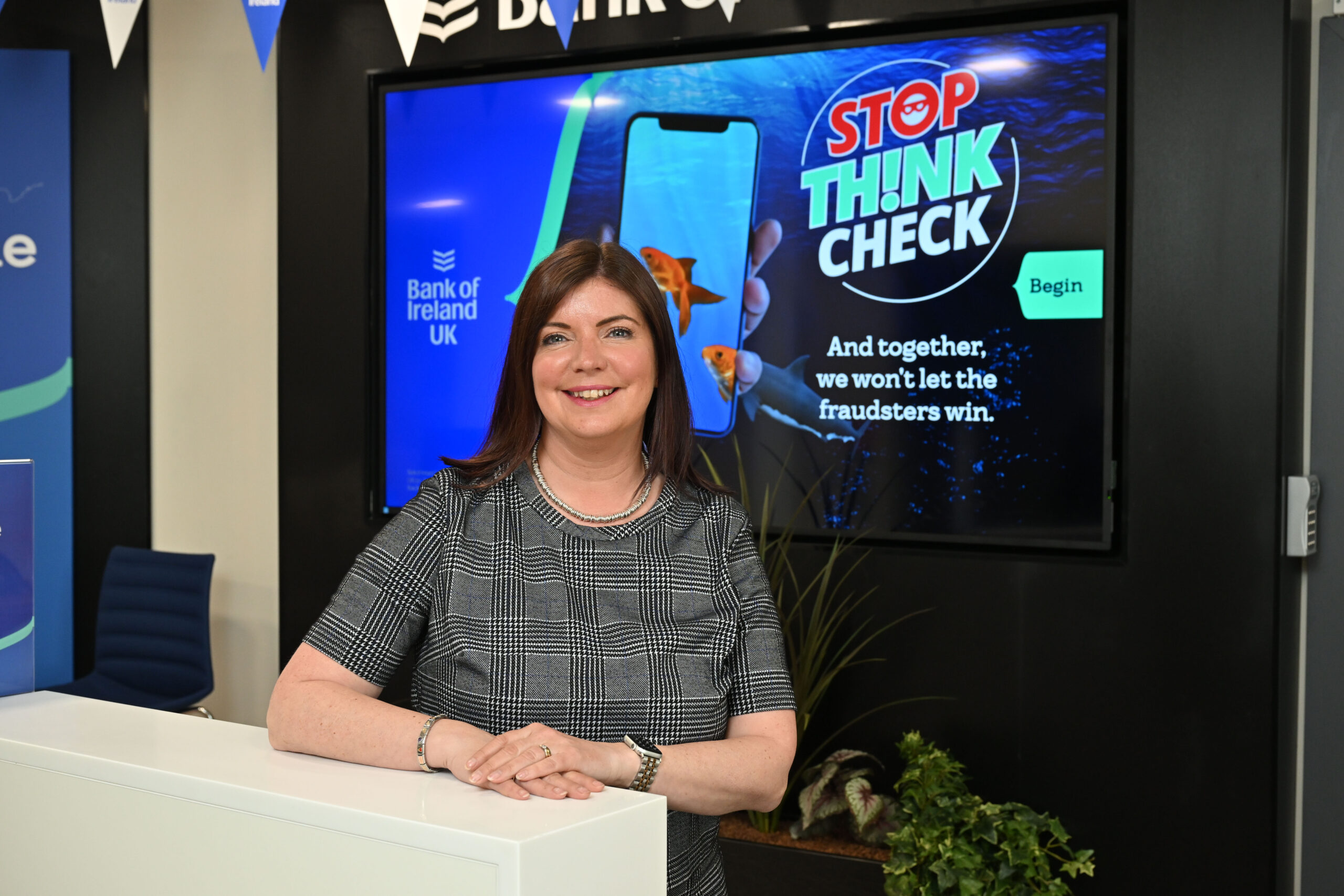Help Chase the Scammers Away this St Patrick’s Day

Bank of Ireland is encouraging consumers to chase out the scammers this St Patrick’s Day and ensure their finances don’t become the fraudsters latest pot of gold.
More than a quarter of all APP (authorised push payment) fraud losses in the first half of 2024* related to investment fraud, with fraudsters coming up with innovative ways to reach even more consumers. An increasing trend of paid ads on social media have seen fake celebrity endorsements promoting online investment schemes. The schemes often impersonate legitimate investment companies, copying their websites and brochure to ensure their investments look professional and their ‘advisors’ appear genuine.
Allison Ewing, Fraud Customer Experience Manager, Bank of Ireland UK, is urging consumers to stay vigilant. “While many people will enjoy a long Bank Holiday weekend, scammers don’t take days off and it’s really important that consumers keep their guard up to attempts from financial criminals to steal their money.
“Consumers need to stay alert and protect their finances from fraudsters on social media and cold calls offering investment schemes that are often too good to be true. Be wary of cold callers, social media ads and letters which offer high rates or return but need urgent attention, or you could find your investment has become the scammers latest pot of gold.
“Our message is clear; take your time before you make any investment, be wary of unexpected investment offers made online, through social media, by email, text or phone call, and never be rushed into making an investment. Do your own due diligence on the scheme, search the FCA register and check the firms contact details match with what is on their official website. And remember, if something sounds too good to be true, it probably is.”
Often the investments promise a quick and profitable return, with little to no risk, but need you to act quickly, and transfer funds to secure the best return possible. For those that make the investment, there are usually promises of returns in the future months or years, however, it is most likely that the funds have been moved to the fraudsters account and neither the initial funds sent or any profit or return will ever be received.
Once the fraudster secures the first investment they will often reach out to the victim providing dashboards with information on the success of their investment, seeking more money to invest. When victims ask to withdraw funds from their ‘investment account’ they may be told they need to pay a fee to release the funds, but this is just another tool to take even more money from the victim.
Fraudsters will also re-target victims of investment fraud schemes, contacting them from a ‘new’ company offering to recover their money for an upfront administration fee. Once the fee is transferred the new company, and any funds paid, disappears.
The 5 red flags of Investment Fraud:
Unexpected calls: You may receive a cold-call about an investment opportunity.
Big/fast returns: They promise a quick and profitable return, with little or no risk.
Pressure: They advise you must act quickly to take advantage of an “opportunity of a lifetime”.
Urgency: They tell you to make an urgent payment to get in on the deal.
Secrecy: They say you’re not to discuss the “investment” with family, friends or your Bank and they may instruct you to sign a “non-disclosure agreement” (NDA).
When it comes to celebrity endorsement remember that not everything is as it appears – they may not even be aware that their name has been associated with an investment.
How to protect yourself from Investment Fraud:
Stop:
- Social media paid for ads promising big returns on investments may not be trustworthy and clicking them should be avoided.
- Be wary of cryptocurrency investment advertisements.
- Don’t engage with any ‘recovery firm’ promising to get funds back for a fee.
Think:
- Be suspicious of unsolicited contact by email, letter, text or telephone. Listen to your instincts – if something doesn’t feel right then stop and question it.
- Talk to your trusted friends and family about your potential investments.
- Don’t be rushed into making an investment; genuine financial advisers and investment firms will not pressure you into making a rushed decision.
Check:
- Search the investment firm/individual details on the Financial Conduct Authority (FCA) register and check:
- If investment firm/individual is registered; all individuals and companies providing investment services within the UK must be listed on the FCA register.
- What activities and services the firm/individual have permissions to provide; if the activity or service the firm/individual is offering is not listed this could be a scam.
- The firm/individual’s contact details; if these differ to the contact details you have for the firm/individual this is likely a scam. You should always use the contact information for the investment firm/individual that is listed on the FCA register.
What to do if you’ve been scammed:
- Stop communication with the suspected scammer immediately.
- Report it to your bank, the PSNI and any relevant platforms, such as dating websites or social media platforms.
Bank of Ireland emergency fraud phoneline: (Available 24 hours 7 days a week) – Freephone: 0800 121 7790.
*Note: ** UK Finance Half Year Fraud Report: Half Year Fraud Report 2024 | Policy and Guidance | UK Finance|